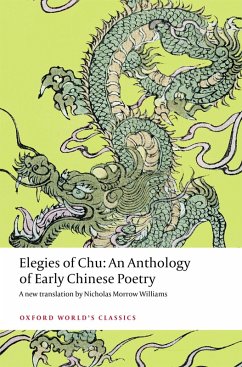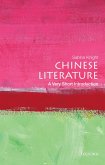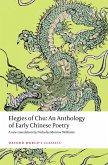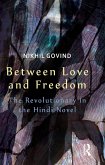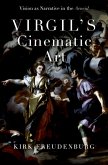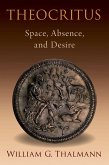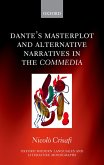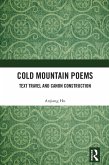Elegies of Chu (in Chinese, Chuci), one of the two surviving collections of ancient Chinese poetry, is a key source for the whole tradition of Chinese poetry. Because the elegies contain passionate expressions of political protest as well as shamanistic themes of magic spells and wandering spirits, they present an alternative face of early Chinese culture; one that does not align with orthodox Confucianism. This translation employs literary English devices in order to emphasise the original structure of these Chinese poems. It also examines the extraordinarily vivid diction of the source texts, including of onomatopoeia, ornate descriptions, exotic flowers, dramatic landscapes, metaphors and startling similes. This translation will be based on the original anthology compiled in the Han dynasty by Wang Yi (2nd century CE), and contains a selection of poems that were collected from the 3rd century BCE through the Han dynasty. The anthology provides readers with an understanding of Chinese literature and its evolution from free-spirited, mythico-religious songs to the more formal, polished style of the Han court.
Dieser Download kann aus rechtlichen Gründen nur mit Rechnungsadresse in A, B, BG, CY, CZ, D, DK, EW, E, FIN, F, GR, HR, H, IRL, I, LT, L, LR, M, NL, PL, P, R, S, SLO, SK ausgeliefert werden.

